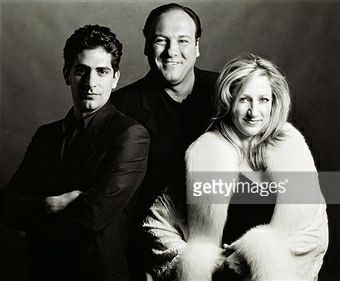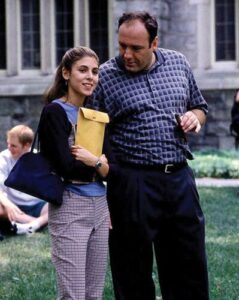
Introduction: Tony Soprano’s Most Heartbreaking Scene
‘The Sopranos’ is a series known for its brutal portrayal of a mafia family, complex characters, and unpredictable plot twists. But amid the chaos of mob life, Tony Soprano—the iconic, tough-as-nails mafia boss—reveals his vulnerability in moments that are as emotional as they are powerful. Among these, one particular scene stands out as Tony’s most heartbreaking moment, and arguably, his best.
This scene, which unfolds in a quiet moment of reflection, is not about bloodshed or power struggles. Instead, it centers on Tony’s inner conflict, his loneliness, and his struggle with identity. It shows a side of him that is rarely exposed: his humanity. While the series is filled with unforgettable moments, this one shines as a true testament to Tony’s complexity and why ‘The Sopranos’ is more than just a mafia drama.
Let’s dive into why Tony Soprano’s most heartbreaking scene is also his best—and what makes it such a pivotal moment in the series.
Tony Soprano: The Complex Anti-Hero
Before we discuss that pivotal scene, let’s take a moment to explore who Tony Soprano is. He is the epitome of the anti-hero—a character who is both compelling and repulsive, a man driven by power and family loyalty, yet deeply flawed and emotionally fragile. Tony’s duality is at the heart of ‘The Sopranos’, and it’s what makes him such a fascinating character to watch.
As a mafia boss, Tony’s world is filled with violence, betrayal, and crime. However, beneath this exterior, he is a man struggling with anxiety, depression, and the weight of his choices. His therapy sessions with Dr. Melfi, throughout the series, give us a glimpse into his vulnerable side—something that set ‘The Sopranos’ apart from other gangster shows of its time.

The Scene: A Quiet Moment of Reflection
In the middle of Season 4, Episode 6, titled “Everybody Hurts,” Tony finds himself in a private moment of vulnerability that is rarely seen in the tough world he inhabits. The scene happens after a series of personal and professional crises, and Tony is confronted with his own emotional fragility.
The turning point comes when Tony sits alone, reflecting on the choices he’s made. His physical posture, his weary face, and the silence all speak volumes. In this moment, Tony is not the powerful mafia boss but a man staring at the consequences of his actions. The pain on his face is palpable, showing how deeply the events of his life have scarred him.
This scene is one of the most emotional moments in the entire series, as it humanizes Tony in a way that feels both raw and relatable.
Why This Moment Matters: Breaking the Mafia Archetype
The true power of this scene lies in how it breaks the typical mafia archetype. In most gangster stories, the focus is on power, violence, and dominance. ‘The Sopranos’, however, challenges these conventions by revealing the internal struggle of its protagonist. While Tony may command fear and respect in the outside world, inside, he is dealing with profound emotional turmoil.
This moment allows us to see the cracks in Tony’s façade. It shows that, despite his bravado, he is still human—burdened by guilt, loneliness, and regret. For a character like Tony, who has spent the entire series keeping his feelings buried beneath layers of machismo, this scene is a rare moment of truth.
The Emotional Impact: Tony’s Vulnerability
What makes this scene so heartbreaking is the emotional weight it carries. Throughout ‘The Sopranos’, Tony’s decisions are often driven by the need to maintain control and power. Yet, in this quiet moment, we see him struggling to hold on to something more fragile—his sense of self. The vulnerability he displays is deeply human, and it’s impossible not to feel empathy for him in this moment.
In this scene, Tony is forced to confront his feelings of inadequacy and fear. The deep loneliness he experiences, despite being surrounded by people, is highlighted. His ability to express this vulnerability, even if fleeting, gives the audience a deeper understanding of the emotional toll of his life.
The Heartbreaking Subtext: Family and Loss
A key element of Tony’s inner turmoil is his relationship with his family. He loves them, but he knows that his actions as a mafia boss have put them in harm’s way. This sense of guilt over his impact on his family adds another layer to this heartbreaking scene. Tony’s fear of loss—whether it’s his wife Carmela, his children, or his position in the mafia—is a constant theme throughout the series.
In this quiet moment, we see Tony question whether it was all worth it. The weight of his choices, his family’s safety, and his own legacy weighs heavily on him. The inner conflict that Tony faces about his actions as a father and a husband makes this scene even more poignant.
The Therapy Sessions: A Glimpse into Tony’s Psyche
Throughout the series, Tony’s therapy sessions with Dr. Jennifer Melfi serve as an outlet for his emotions. These sessions offer insight into his struggles and allow us to see the more human side of the mafia boss.
The scene in Season 4 feels like a culmination of all the emotions that Tony has expressed in these therapy sessions. It’s as if the walls Tony has built around himself—his pride, his strength, and his cruelty—have momentarily crumbled.
What makes this scene even more impactful is that it happens without the direct influence of Dr. Melfi. It’s a raw, unscripted moment where Tony is forced to confront himself in the absence of any guidance.
The Subtlety of the Scene: Silence Speaks Volumes
What makes this scene particularly powerful is its subtlety. There are no grand speeches or dramatic revelations. It’s the silence, the quiet reflection, and the fleeting expression of regret that makes this moment so unforgettable. The lack of dialogue allows the audience to connect with Tony on a deeper, more emotional level.
In a world dominated by violence and chaos, the peacefulness of this scene offers a stark contrast that makes it even more poignant. The stillness highlights the emotional weight that Tony carries, and the quiet sadness of his situation.
Tony Soprano’s Best Moment: The Emotional Core of ‘The Sopranos’
While Tony Soprano has many memorable moments—violent outbursts, power plays, and tense confrontations—this scene stands as his best moment because it strips away the layers of his character and reveals his deepest emotions. In this moment, Tony is not the feared mafia boss but a man who is confronting his own emotional wreckage.
The vulnerability he shows here is unmatched by any other moment in the series. It challenges the idea that Tony is just a gangster and reminds us that at his core, he is a deeply conflicted human being.
The Legacy of ‘The Sopranos’: Why This Scene Endures
As one of the most critically acclaimed TV shows of all time, ‘The Sopranos’ continues to resonate with audiences long after its conclusion. Tony’s most heartbreaking moment is a perfect example of why the show remains so impactful. It presents characters that are complex, flawed, and relatable, allowing viewers to connect with them on a deeper level.
Tony’s journey is one of self-discovery, regret, and ultimately, acceptance. This heartbreaking moment in Season 4 captures that journey in its rawest form.
Conclusion: The Power of Emotion in ‘The Sopranos’
At the heart of ‘The Sopranos’, the most powerful moments are often the quiet, emotional ones. Tony Soprano’s most heartbreaking scene is not just about a mafia boss grappling with his choices; it’s about a man coming to terms with his own vulnerabilities. It’s a testament to the strength of ‘The Sopranos’ as a series, where real human emotions are just as important as the crime dramas.
FAQs
1. Why is Tony Soprano’s most heartbreaking scene considered his best moment?
This scene is Tony’s most heartbreaking because it reveals his vulnerability and inner conflict, showing a side of him that is rarely seen in the series.
2. What makes ‘The Sopranos’ stand out from other mafia shows?
‘The Sopranos’ stands out due to its deep focus on character psychology and emotional depth, particularly the portrayal of Tony’s complex, multifaceted personality.
3. How does Tony’s therapy with Dr. Melfi influence this scene?
Tony’s therapy sessions set the stage for this moment of emotional vulnerability, allowing him to confront his feelings of guilt, fear, and loneliness.
4. Why is silence so powerful in this scene?
The silence speaks volumes by allowing the audience to focus on Tony’s emotions without the need for words, making his internal struggle even more powerful.
5. What does Tony Soprano’s vulnerability tell us about his character?
Tony’s vulnerability reveals that, despite his violent and controlling nature, he is ultimately a human being struggling with deep emotional turmoil and existential questions.